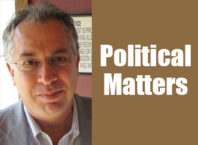White Earth’s gaming proposal
The political dynamics of the Minnesota Vikings stadium funding debate changed in December, with the departure of Sen. Amy Koch, R-Buffalo as the Senate majority leader. And at a second Senate committee hearing on the stadium issue, the White Earth Band of Ojibwe introduced a proposal to open a new casino in Ardens Hills, the stadium site favored by the Vikings’ owners.
Perhaps you saw news reports about what is being referred to as Koch’s "inappropriate relationship" with a Senate staffer. Senate Republicans reportedly were notified about the hanky-panky involving Koch and a Senate employee in September; but Koch was not confronted by her colleagues until a closed-door meeting in December.
(In the aftermath of revelations about Koch’s inappropriate behavior, Gov. Mark Dayton urged the GOP-controlled Legislature to repeal the 2012 ballot measure for a constitutional amendment to ban same-sex marriage. The proponents of the amendment argue that gay marriage, which is already banned in Minnesota, would damage "traditional" marriage between a man and a woman. However, l’affaire Koch heightens the hypocrisy of the argument against same-sex marriage; after all, the Republican senator violated her own wedding vows, apparently without help from any gay person.)
But back to gambling. On Dec. 6, two Minnesota Senate committees held a joint hearing on Vikings stadium proposals. Much of the six-hour hearing focused on funding sources for a billion dollar football stadium. Among those testifying was Sen. David Senjem, R-Rochester, who was elected as the new Senate majority leader on Dec. 27.
As it happened, Senjem began his remarks with the comment: "It’s good to be here to present racino." The "racino" concept, as I mentioned in last month’s column, is a casino at an existing horse track. As it would work out, Canterbury Park and Running Aces would get the bonanza of slot machines in a racino deal.
Senjem told his fellow state senators that "thousands upon thousands of Minnesotans believe that, if there is to be a new stadium," racino presents the "most viable" funding option. Racino legislation presumably would give the state a significant cut of the profits.
Minnesota Public Radio reported at the end of December that Senjem has been part of a "private working group writing a stadium financing bill and has made his stand clear."
Senjem told MPR: "I don’t know in the end exactly how this is going to work but we’re going to give it a fair shot and a good shot," he said, regarding legislation to get a Vikings stadium built.
The key, according to Senjem, is finding the "magic formula" that would gain sufficient support in the Legislature, where Republicans control both houses. Gov. Dayton has expressed his support for a new Vikings stadium – a position strongly supported by the building trades unions.
At the same Dec. 6 Senate hearing, Erma Vizenor, White Earth tribal chairwoman, testified about a proposal for a tribally-run casino in Arden Hills, which would "preserve the exclusivity of Native American gambling in Minnesota" – in reference to the fact that the Indian bands in Minnesota operate all 18 of the casinos in the state. However, there is nothing prohibiting the state from expanding its gambling enterprises (lottery, pari-mutuel horse racing, etc.) to include a casino.
Vizenor, who was introduced by Bill Haas, a former legislator who is now a lobbyist for the band, also said that a White Earth-run casino in the metro area would provide a "more equitable" distribution of gaming revenue among the Indian bands in the state. White Earth, located in northern Minnesota, is the largest Indian band in the state, with 20,000 enrolled members, about half of whom live in the Twin Cities.
Under the White Earth "gaming solution" to fund a Vikings stadium and meet other social needs, $300 million in annual net revenues from a casino – from 150 table games and 4,000 slot machines – would be split between the band and the state, according to Vizenor.
The White Earth gaming proposal also specifies that there would be a moratorium on urban casinos until the band pays off the mortgage on casino, or the state of Minnesota pays off the remainder of the casino’s mortgage.
I don’t know what support the White Earth proposal enjoys in the Legislature. In his story for MinnPost. com, Doug Grow reported: "Legislators at the public hearing showed virtually no reaction to the Vizenor proposal." Presumably, the Dakota bands located close to the Twin Cities, Shakopee and Prairie Island, would lobby against tribal competition on their turf.




